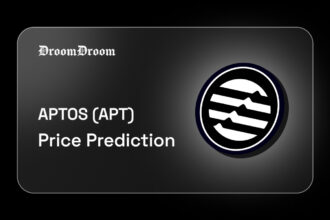Smart Contracts has driven DeFi, Decentralized Finance technologies bringing an increase of popularity of DeFi smart contract development. Smart contract ensures the satisfaction for both entrepreneurs and consumers, thus higher adoption rate comes as a result.
The decentralized finance applications leverage smart contracts for trading, borrowing, lending, stablecoins, derivatives, etc. Defi is built on the principle of composability. This means that different smart contracts can be combined to create new financial instruments and applications.
Smart contracts helps in the removal of irrelevant paperwork and costly intercessors that are needed to smooth the path of traditional contracts, business and exchanges which brings to the clarity and clearness on the blockchain.
One can depend on it as it allows trusted deals, businesses and agreements to be carried out between different or contrasting associations without the need for an external implementation mechanism, central authority or lawful systems.
Blockchain has really developed far beyond supporting a virtual currency and this is because blockchain technology has come to be viewed essentially as the bedrock for Bitcoin.
What is DeFi?
Decentralized Finance which is commonly known as DeFi, helps in authorizing and arranging cryptocurrency-build businesses, trade and economic services.
DeFi is focused in balancing financial affairs with consolidated institutions, heritage with colleagues connections that can give us the full picture of the commercial services, that starts from banking, credits and pledges to benefiting deals and complex contractual connections.
Meaning of Smart Contracts
It can be defined as schemes saved on a blockchain which run when prearranged circumstances are met. They are usually used automatically in carrying out an agreement in which all participants can instantly be sure of the results, it reduces any inconvenience or loss of time.
Types of smart contracts
1. Smart legal contracts.
2. Application logic contracts.
3. Decentralized Autonomous Organization (DAO)
Smart Legal Contracts
One thing about Smart legal contracts: they are legitimately authorized, meaning that they are enforced legally. Digital signatures are used by the contracting parties while signing the contract.
Some examples of Smart legal contract are outlined below;
– Digital will
– A legal agreement in the middle of two firms, companies or organizations
Application logic contracts
Communication here has been made much easier between smart devices with the help of IoT, devices are growing smarter in our day-to-day lives and this is done by the use of smart contracts. In that those contracts are named Application Logic Contracts.
Decentralized Autonomous Organization(DAO)
Commercial cultures are being transformed by smart contracts, joint decisions build employment by the parties concerned or shareholders mounting up the DAO. Everyone is equal according to this type of Smart contract meaning no one is above the other, no one can be boss. In addition, decisions are made in a voting system and can’t change even when leadership changes.
A few examples of this type of contract is listed below:
- VitaDao
- Molecule
Benefits of smart contract in DeFi
Smart contracts are lines of formalities that have been made digital. In this case, smart contracts allow DeFi agreements to be conducted completely online. This, although, minimises the cost for both the consumers and the organisations.
- Safety: Security measures are placed in a DeFi smart contract software to help evaluate frequently and ensure that it is malleable with the standards of the industry. Immediately the seller and the buyer are in sync on its code, no change of any kind can be done. In that, it comforts both the organization’s concerns and the client’s concerns.
- Minimum fees: The cost of activities is quite at a low price as smart contracts majored in DeFi arrangements do not need the involvement of a third party.
- External variables: As everything is merged into a computerized system, external influences have no strips on the financial services being provided by DeFi arrangements.
- No debates: With the noninvolvement of a middleman by the fact that it was ruled out, smart contracts does not allow any debates or disputes between the seller and the buyer.
- No interference: The overpriced level of accuracy in operation is met due to the fact that there is no human interference. The whole procedure is actually computerized for speed and in so doing, there is use of manual labor and the performance is greater to that of traditional services.
- Decentralization: This is a word that is used to define the meaning of the execution of smart contracts, that is totally decentralized, carries out all transactions and are kept in a decentralized network that is highly unchangeable.
Blockchain’s role in smart contract based in DeFi
Blockchain innovations or technology, a major component of smart contract majoring in DeFi programmes, offer a distributed ledger where all agreements are written down and confirmed, allowing for the storage and retrieval of all transaction links, which enabled the identification and confirmation of a hack perpetrated against RING financial.
There are numerous blockchain programmes or platforms which can be used for smart contact majoring on DeFi that may include, Polkadot, Binance smart chain and also Ethereum. The platform of your choice will be based on the needs you specifically want of the application as all the different platforms or programmes have their own benefits, advantages and disadvantages.
We ought to recall that smart contracts are remodelling and reforming the sphere of finance, which helps enable low priced, swift and more firm or safer transactions. Smart contracts majoring in DeFi programmes are already beginning to have outstanding impact on the financial industry which provides a different system to that of traditional financial systems.
The future of smart contracts majored in DeFi is vivid and bright. However, there are quite some certain disadvantages and challenges that need to be dealt with as many specialists forecast remarkable progress in the years to come. It is really easy to see that they are worth being focused on despite being a business person or just simply interested about the future in the field of finance.
What Are the Issues With Smart Contracts and DeFi?
For use in a DeFi setting, there are some potential issues that need to be considered. In a decentralized mechanism, smart contracts are processing external data which without having a centralized, verified data source will need to be verified some other way.
For example, DeFi users require access to reliable price feeds to know that the value of a digital asset is accurate and free from outside manipulation, so that they can safely and confidently transact in a decentralized environment.
A solution to this issue is to use a data-oracle platform, such as Band Protocol. Data oracle platforms allow for decentralized applications to benefit from the use of smart contracts by providing access to trusted, verified data from multiple sources. In this way, smart contracts can be executed free from outside manipulation and remains fully decentralized.
Conclusion
DeFi smart contract development acts an outstanding role in the universe of finance as it computerizes everything and makes work better and easier. These contracts allow you to have the ability to automate some processes in a contract.They apply accordingly responses to different kinds of inputs and action and they also take care of certain variables.
















